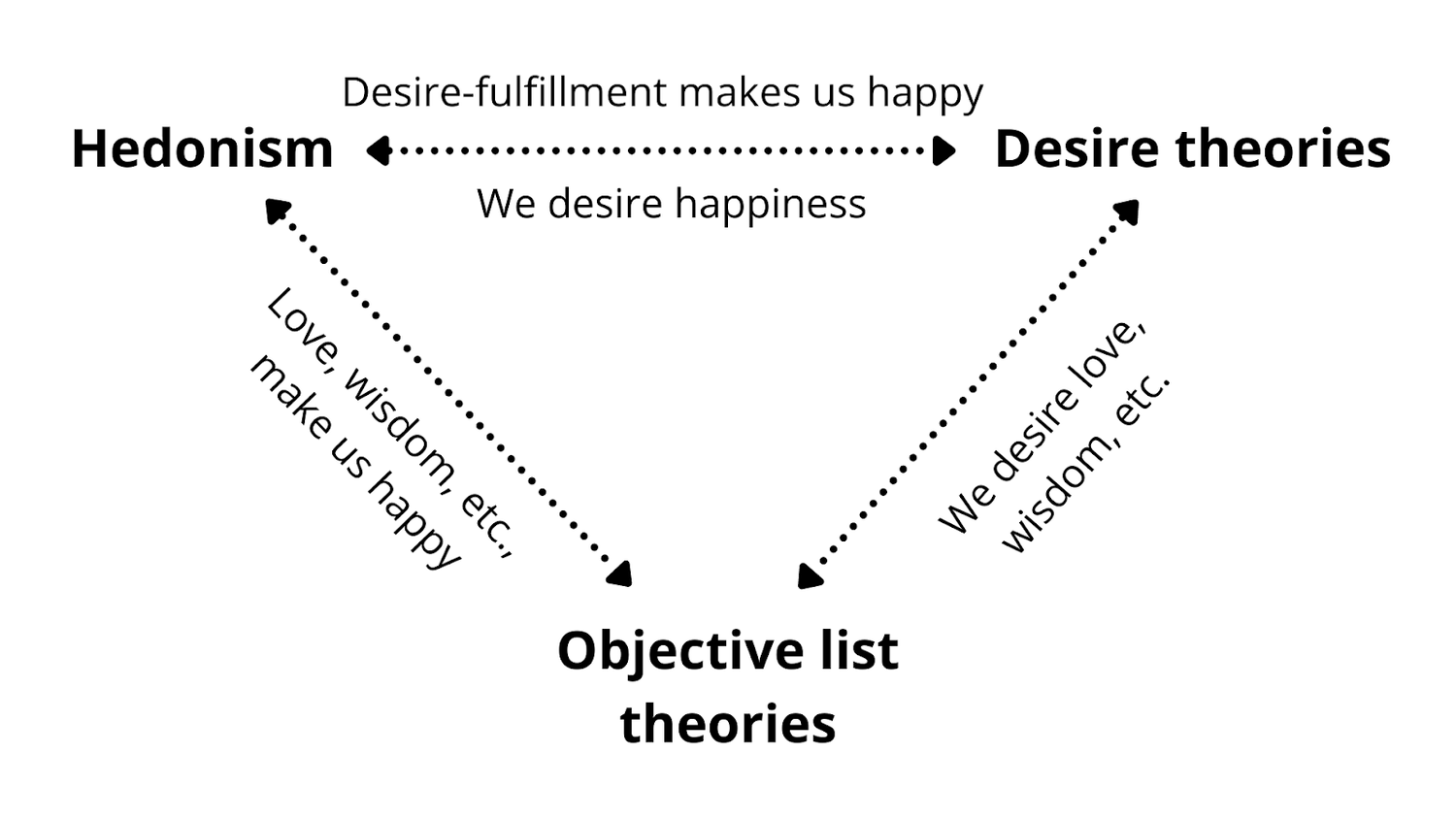Well-being and Prosocial Behavior
18 Jul 2023What is the goal of behaviors that seek to benefit others, such as acts of generosity or pursuing (scientific/economic/social) progress? Increasing well-being is a commonly-accepted answer; but what does that mean?
Philosophically, well-being usually refers to how well a person’s life is going for them. In defining well-being, we need to distinguish between what inherently contributes to well-being (such as happiness), and what is a means (or instrument) to well-being (such as money). There is consensus that a person’s well-being consists of the former: things that in themselves are good for them; but there’s disagreement on what those things actually are.
There are three main categories of theories for what constitutes well-being, crudely paraphrased below:
- Hedonism: an overall positive balance of pleasure (i.e. happiness) over pain
- Desire theories: having one’s preferences fulfilled
- Objective list theories: a list of things that objectively make someone’s life better, regardless of whether they are consciously pleasurable or desired
These articles provide a deeper look into these theories and their points of contention.
Some additional notes to clarify related terms:
- Happiness isn’t necessarily the same thing as well-being, but happiness can be part of well-being
- Happiness has short-term and long-term components; the latter can be understood as life satisfaction (i.e. being content with one’s life)
- Well-being theories based on life satisfaction are usually considered to be their own category, separate from the main three
- The concept of eudaimonia is an objective list theory
Tying this back to prosocial behavior: these theories of well-being are relevant in choosing how we want to benefit others. We can try to increase others’ happiness, empower them to fulfill their desires, or promote something within an objective list (such as success, friendship, knowledge, virtuous behavior, or health); each of these outcomes would be valued differently, depending on which well-being theory one subscribes to.
Though while these theories are useful for reflecting on the nuances of what’s good for us, their differences aren’t as important in practice, as most theories of well-being share common themes of what’s good for someone. For most proposed constituents of well-being (e.g. happiness, wisdom), each theory has a way to justify it, as illustrated below. This is because we tend to desire things that are (typically regarded as) objectively worthwhile, and we tend to be happier when we achieve what we desire. We may also tend to reshape our desires based on our experiences of what feels good.
